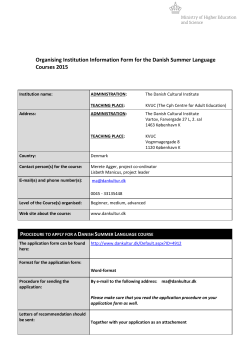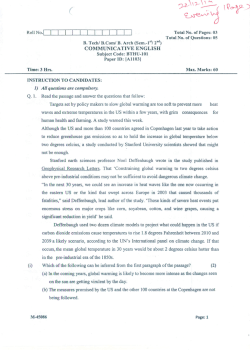
The Bounty of the Sea and Long
The Bounty of the Sea and Long-run development By Carl-Johan Dalgaard, University of Copenhagen Abstract: What is the long run impact on development from differences in subsistence strategies during pre-industrial times? Whereas this question has been explored from the point of view of agriculture, virtually no attention has been paid to the complementary strategy of relying on marine resources. In the present paper we take a step towards closing this gap in the literature. We construct an index -- "the Bounty of the Sea index -- which captures the potential abundance of marine fish that individual countries have had access to, and proceed to explore its correlation withofeconomic development. Our Taisuke Otsu ¦ London School Economics and Political analysis reveals that a greater Bounty of the Sea stimulated pre-industrial development and that countries inhabited by people with ancestry in regions with abundant marine resources are richer today. Probing possible mechanisms, we find that societies comprising people with ancestry in regions featuring rich marine resources differ from societies with a purely agrarian legacy in terms of average personality traits; cultural values, and property rights institutions. Wednesday, 27 May 2015 1:00 - 2:00 pm by Burkhard Heer, University of Augsburg Location Carl-Johan Dalgaard Ph.D (University of Copenhagen) 2002; Professor of economics (University of Copenhagen) since 2008. Other affiliation: Center for Economic Policy Research (CEPR, London). Associate editor: Journal of Economic Growth and Economica. Co-Chairman of the Danish Economic Council. Board Member of the Danish Economic Association. 148, av. de la Faïencerie L-1511 Luxembourg Room BRC201 Science Langue English Registration - - Free seminar Registration to crea@uni.lu (please specify full name and institution) Lunch is planned for registered participants Contact crea@uni.lu Tel: +352 46 66 44 6336
© Copyright 2025





















